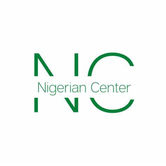
OUR IMPACT
Our Values and Initiatives
Every DC resident should have access to the legal assistance necessary to improve their lives, protect their families, and strengthen their communities. Since 1977, the DC Bar Foundation has awarded civil legal aid grants totaling more than $207 million to ensure equal access to legal protection, regardless of income or circumstance. Our strategic investments go directly into the community to make a tangible difference in people’s lives.
Our grantee partners provide life-saving civil legal services with the funds they receive through our two grant initiatives: Access to Justice Grants and the Civil Legal Counsel Projects Program. These programs have helped DC residents:
-
Remain safely housed, reducing the number of individuals and families seeking shelter and other public assistance;
-
Address custody placement and other family matters, giving children the opportunity to grow and thrive in safe and loving environments;
-
Protect their rights as consumers and access employment benefits so they can pay for basic living expenses;
-
Obtain protective orders against abusive partners and access resources to help rebuild their lives;
-
And more.

But the DC Bar Foundation’s impact goes beyond grantmaking. Our initiatives are creating real change for District residents needing civil legal services:
-
The DC Resource Bridge is a client-centered system that makes it easier for District residents to access legal help.
-
The DC Social Justice Transformations Network facilitates greater cohesion and coordination between legal and supportive services providers across the District.
-
The Loan Repayment Assistance Program makes it more possible for legal aid attorneys with lower salaries to repay their often significant educational debt.
With deep appreciation for our donors and strategic partners, including the Executive Office of the Mayor, DC Council, and the Office of Victim Services and Justice Grants (OVSJG), the DC Bar Foundation continues to work to enfranchise DC residents and make the District of Columbia a safer and thriving community by expanding access to justice initiatives and closing the justice gap.

Our Impact Across All Wards



_edited.jpg)

Supporting Homeownership
Ms. Rivers, the surviving wife of Mr. Rivers, contacted the Future Planning and Probate Program to receive help with her family home. She and her husband had owned a home together in D.C., where they were raising their three adopted children, when Mr. Rivers suddenly and unexpectedly passed away without a will. Amidst Ms. Rivers' grief and the profound changes facing her family, she was confronted with an even greater challenge: the mortgage company that held a loan on their home filed a petition to become the Personal Representative of Mr. River’s estate in order to sell the home and satisfy the mortgage. Although she was the surviving spouse, Ms. Rivers was unable to petition to become the Personal Representative herself, as she could not meet the bond requirements. The managing attorney for the Future Planning and Probate Program worked closely with Ms. Rivers and a trusted friend to file an objection to the mortgage company’s petition. They also helped the close family friend file a petition to be appointed as the Personal Representative, with Ms. Rivers' full collaboration. The court granted that petition, ensuring that Ms. Rivers and her friend, not the mortgage company, would control the probate process. This outcome helped Ms. River maintain the home and its equity, allowing her and her children to move forward with greater security and stability.
Enabling Access to Education
Mr. Johnson, the parent of a special needs child attending a DC Public School, reached out to a legal services organization for help ahead of his child’s annual Individualized Education Program (IEP) meeting. His child had recently begun exhibiting concerning behaviors, drawing the attention of the entire IEP team. After previous conversations with the school left him feeling confused and mistrustful of their intentions, Mr. Johnson wanted to ensure that both his rights and those of his child were fully protected. The case was assigned to a staff attorney at a legal services organization. During the intake process, Mr. Johnson made clear his commitment to securing the proper supports for his child, though he was unsure what options were available. The attorney met with Mr. Johnson several times, reviewed the child’s records and relevant data, explained the legal framework under the Individuals with Disabilities Education Act, and helped Mr. Johnson define clear goals in advance of the IEP meeting. During the course of their preparation, a procedural error on the part of the school came to light. The staff attorney explained the nature of the error, advised Mr. Johnson on how to address it, and provided brief assistance by helping him draft a response. The error was resolved, and the collaborative relationship between Mr. Johnson and the school remained intact. With the guidance and support of the legal services organization, Mr. Johnson was empowered to advocate effectively for his child. The resulting IEP reflected the input and concerns of both the school and the family, and was designed to meet the child’s unique educational needs, ensuring access to a free appropriate public education.
Defending Against Fraud
Ms. Glanville, a 45-year-old resident of Washington, DC, suffered lead poisoning as a child, resulting in lifelong learning disabilities and cognitive challenges. In 2021, she was approached by a company offering to purchase her future structured settlement payments. These payments were part of a legal agreement meant to compensate her for the injuries she sustained as a child. The transaction required court approval. Prior to the hearing, an employee of the company, Mr. M, called Ms. Glanville and coached her on how to answer questions during the proceedings. He instructed her not to ask any questions and did not disclose his involvement or coaching to the court. After the transaction was approved, the company mailed checks to Ms. Glanville. Following Mr. M’s instructions, she did not initially deposit the checks and instead kept the checks in her residence. Later, Mr. M drove her to a bank and directed her to deposit the checks. At his instruction, she put a large portion of the funds into a savings account and a smaller portion into a checking account. Mr. M then withdrew all of the funds from those accounts, and the accounts were eventually closed with no money having been returned to Ms. Glanville. When her structured settlement payments stopped arriving, she was surprised and confused because she did not fully understand the nature of the transaction. Ms. Glanville later obtained legal assistance to challenge both the undue influence surrounding the transaction and the loss of her funds. Her legal team also raised concerns about improper deductions and transfer fees, as well as the company's failure to provide accurate and complete disclosures in its court filings. These omissions may have violated court rules and applicable laws. The company has filed a motion to dismiss the case, which is now actively being litigated. Neither Mr. M nor the company that purchased the structured settlement rights appeared in court. A subpoena has been issued to the bank where the funds were deposited, and additional legal claims are under consideration to help Ms. Glanville recover what was taken from her.
Our Grantee Partners In the Community
The DC Bar Foundation is proud to partner with legal and supportive service providers across all eight Wards of the District. These organizations deliver essential services that promote safety, health, and stability in the community. As residents’ needs evolve, our partners continue to respond with dedication and commitment.


































